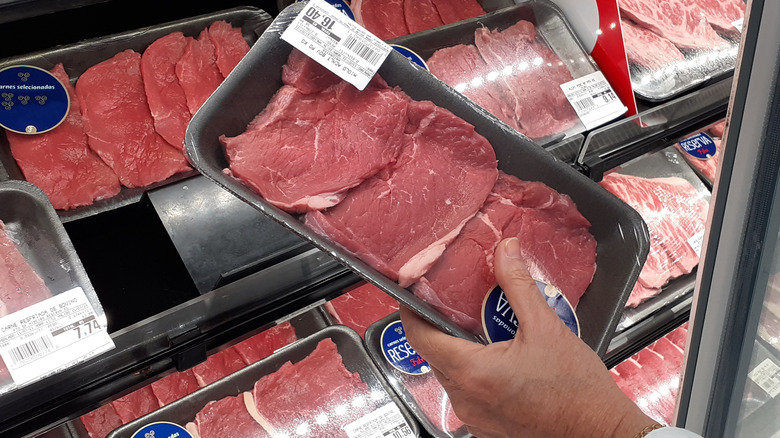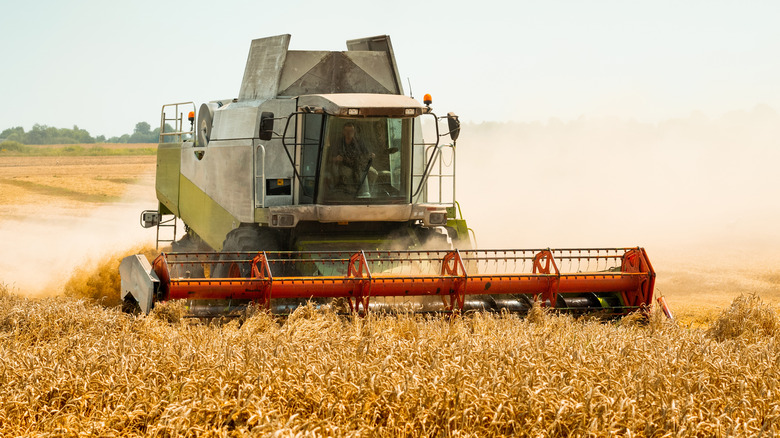Why One Potential Solution To Food Inflation Was Ignored
Complaining about the price of things is pretty much ingrained into the workings of the human brain. Gone are the days of decades ago when people could buy a house for about five cents, and now people are so skilled at constantly looking for bargains that it's basically a sport. Maybe it should be incorporated into the Olympic Games.
The price of essentials, especially food items, is a particular concern of Americans — CNBC reported that 90% of U.S. residents are worried about rising food costs. The report suggests that consumers' concerns are justified, noting that food prices have risen by 9.4%. As a result, shoppers are buying in bulk, cutting down on grocery trips, avoiding expensive brands, and spending less on eating out to save money.
Meat, eggs, and cooking oil have all become more expensive to buy, according to Reuters — with failed crops, labor shortages, pandemic lockdowns, Russia's invasion of Ukraine, and, CNBC noted, fuel expenses triggering price increases. Tackling the global problem is not an easy task, but one option that could help subdue the issue has not been widely taken on board: taxing wealthy people.
Taxing the rich could help others afford food
The White House shared the administration's commitments to help farmers with insurance, fertilizer, and technology in order to control food prices. However, president Joe Biden admitted there is little he can do to immediately control rising costs, reports CNN.
Some organizations disagree, however. According to CNN Business, Oxfam estimates that a 2% tax on people with more than $5 million of assets, and a 5% tax on those with over $1 billion, could generate $2.5 trillion across the globe — money that could be invested in supporting hungry people, it is argued. Despite public support for wealth taxes, CNBC explained that introducing them is complicated due to the risk of legal challenges, and people bypassing the system by using complex financial strategies to protect their assets. Elsewhere, the U.K. government has introduced a 12-month 25% levy on energy companies due to the extra cash they are generating from high fuel prices, which could generate £5 billion in tax, notes BBC News.
Food price challenges are evidenced by Bloomberg's report that food banks are cutting down on handouts due to the cost of buying goods, despite the USDA's Economic Research Service estimating 13.8 million American households struggle to acquire food.

